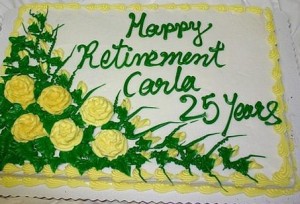Our Retirement Train Wreck

People find it all but impossible to save in this environment. Our national savings rate hovered around ten percent in the late 1970s and early 1980s. Today, it is a little more than two percent. Just take a look at what happened when companies began to adopt automatic enrollment plans for 401(k)s, that is, forcing people to opt-out of retirement plans instead of filling out papers to join up. Yes, the number of people contributing to deferred contribution accounts — but so too did what industry insiders call “the leakage” rate — that is, people borrowing against or withdrawing the monies in their accounts (and if that money isn’t repaid, the consumers withdrawing it need to pay penalties for accessing it). That number is now close to 25 percent.
If you’ve read Helaine Olen’s Pound Foolish, you know why the 401(k) and our current system of saving for retirement is problematic and have seen Olen run through the many problems: the costs of our essentials (housing, health care, education) have skyrocketed while American wages have stagnated which means there is little money leftover for workers to sock away for their retirements (the median amount a typical American family has saved for retirement is less than $12,000 and those between the ages of 55–64 have about $100K — far from enough to retire); the fees associated with managing retirement accounts can be pretty outrageous and many people contributing to 401(k)s or IRAs don’t have a firm grasp of how they work, nor do employees have control over which retirement plans their employers offer and just have to settle with whatever they’re given; the financial services industry makes a lot of money making it difficult for people to comprehend what they’re actually investing in (annuities, for example).
This isn’t just bashing on the financial services industry or saying everyone needs to opt out — we’ve got to make the best of what we’ve got while looking for a better alternative (remember that 401(k)s are a fairly recent invention that we’re now discovering are a problematic way to get people to save for their futures). Even John C. Bogle, the founder of Vanguard (where I happen to have my own Roth IRA), has said that the American retirement system is “facing a train wreck.”
So: Identifying the problem is a start. I’ve been reading up about our retirement system and am planning on talking to people who are considering the problem and coming up with new ideas. [Thanks to Leigh for the pointer to Olen’s Salon piece.]
Photo: grantlairdjr
Support The Billfold
The Billfold continues to exist thanks to support from our readers. Help us continue to do our work by making a monthly pledge on Patreon or a one-time-only contribution through PayPal.
Comments